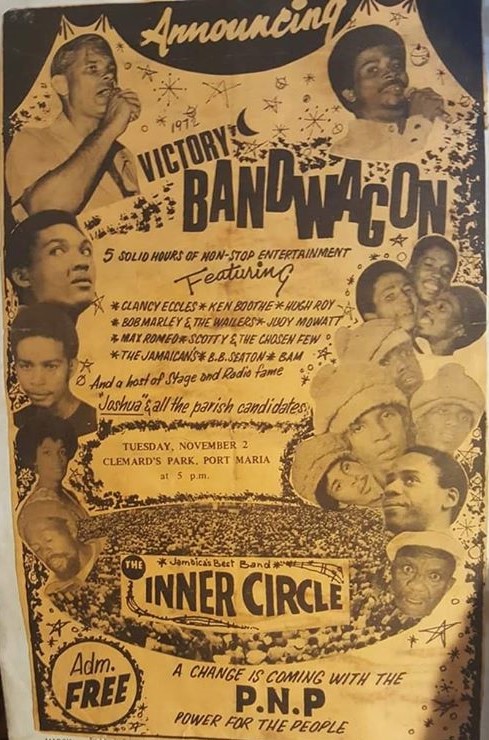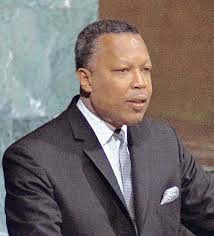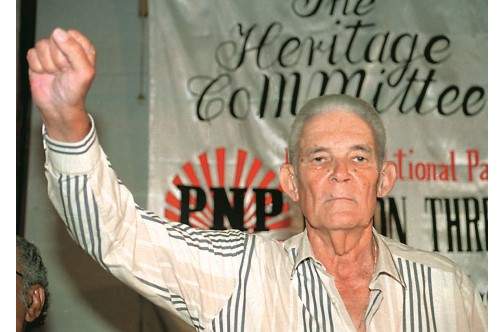
It was 1971, and the majority of Jamaican youth were restless. Nine years after their country gained independence from Great Britain, some pillars of colonialism stood firm.
With a general election in the air, many of them were willing to take a chance on Michael Manley, firebrand leader of the Opposition People’s National Party (PNP). This month marks 50 years since he led them to victory — a resounding triumph driven by a reggae soundtrack.
The musical bandwagon that accompanied Manley on his islandwide campaign played a big part in his win. Organized by theatre giant Buddy Pouyatt and impresario Clancy Eccles, it featured Ken Boothe, The Wailers, The Gaylads, Junior Byles, Max Romeo, and Delroy Wilson, backed by the Inner Circle band.
In an interview with the Jamaica Observer 10 years ago, Max Romeo spoke of his administration for Manley. Organisers wanted to use his song, Let The Power Fall on I, for the campaign.
“They thought it was appropriate, so they contacted me and asked permission to use the song. Manley was saying the right things. I liked the idea of the people having more of a say,” he said.

Two other popular songs in Jamaica were the defiant Beat Down Babylon and Better Must Come by Byles and Wilson, respectively. They summed up the frustration young people were feeling with the Jamaica Labor Party (JLP) Government of Prime Minister Hugh Shearer.
Things came to a head in October 1968 when Shearer prevented Walter Rodney, a Guyanese lecturer at the University of the West Indies, from re-entering the country. Rodney, who was returning from Canada, had stirred UWI students and members of the nearby August Town community with Black-conscious speeches which angered the conservative JLP and many of its supporters.

Barring him triggered a riot in Kingston. Students shut down the UWI campus and were part of a demonstration that marched on the prime minister’s residence.
Manley, who campaigned on a platform of social change that would benefit Jamaica’s black majority, spurred the PNP to an emphatic win in the February 29 election. They captured 37 of the 53 parliamentary seats and sent a clear message that a new day had dawned in Jamaica.


You must log in to post a comment.